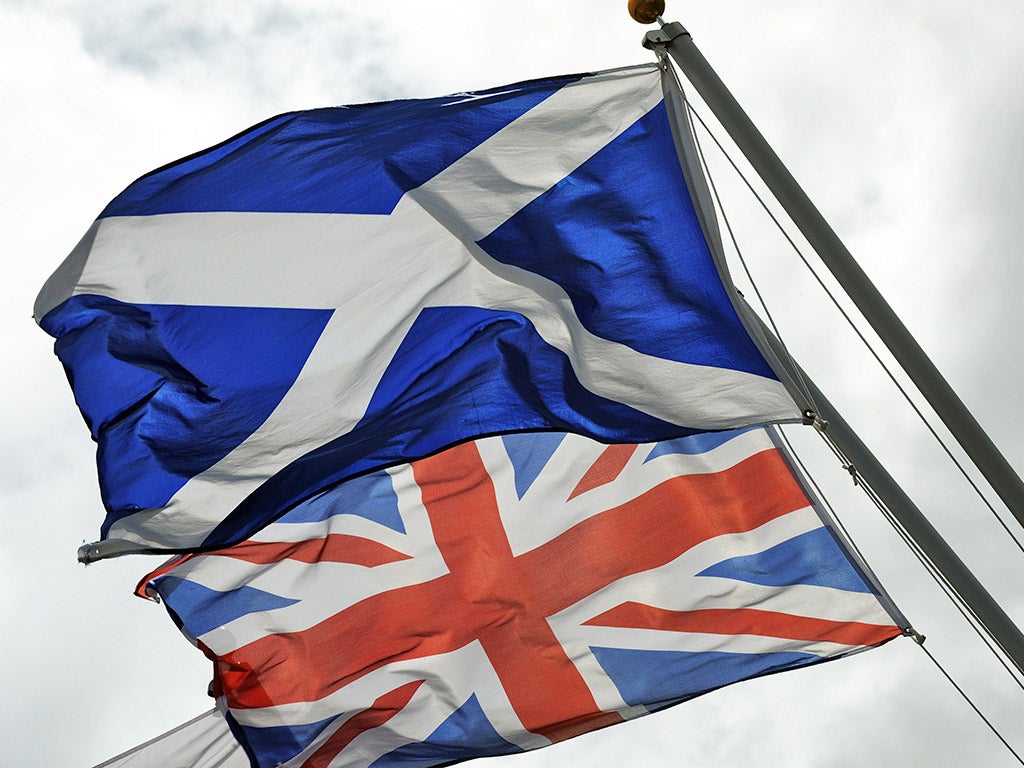Scotland Bill: Four things you need to know about the new devolution powers
What can Scots expect?

Your support helps us to tell the story
From reproductive rights to climate change to Big Tech, The Independent is on the ground when the story is developing. Whether it's investigating the financials of Elon Musk's pro-Trump PAC or producing our latest documentary, 'The A Word', which shines a light on the American women fighting for reproductive rights, we know how important it is to parse out the facts from the messaging.
At such a critical moment in US history, we need reporters on the ground. Your donation allows us to keep sending journalists to speak to both sides of the story.
The Independent is trusted by Americans across the entire political spectrum. And unlike many other quality news outlets, we choose not to lock Americans out of our reporting and analysis with paywalls. We believe quality journalism should be available to everyone, paid for by those who can afford it.
Your support makes all the difference.A raft of new powers are set to be devolved to Scotland after legislation which was promised in the wake of last year’s independence referendum passed its final hurdle in the House of Commons. But what can Scots expect from the Scotland Bill?
What is in it?
From April 2017, the Scottish Parliament will be able to set the rates and bands of income tax for the first time. It will also keep half of all VAT receipts and be allowed to top up welfare benefits and create new payments. The Scottish Government and the Scottish Parliament will also be recognised as permanent parts of the constitution, with a referendum required before either can be abolished.
Ministers at Holyrood will also be given control over Scotland’s abortion laws, although the SNP says it has no plans to make any changes in this area. Enhanced powers over welfare were also granted, including the ability to top-up any cuts to tax credits made by the UK government.
What isn't in it?
A number of amendments tabled by opposition parties did not make it into the final Bill after being rejected by MPs – including the SNP’s suggestion that the Scottish Parliament should be able to decide when to hold another referendum on independence. The party also saw its demand for the devolution of full control over child and working tax credits voted down.
Labour’s suggestion that Scotland should be able to keep all of its VAT was also rejected, as was an amendment calling for an independent commission to examine the pros and cons of full fiscal autonomy.
What happens next?
Nothing will change just yet, as the Scotland Bill still has to clear the House of Lords and pass through Holyrood, where it will face keen scrutiny from the SNP and others. Before becoming law it then requires royal assent, which is expected to be granted next spring just in time for the Scottish Parliament election in May.
Does it fall short of what was promised?
It depends who you ask. The UK Government says that in its current form the Bill will make the Scottish Parliament the most powerful devolved assembly in the world, with Scotland Secretary David Mundell arguing that it is now “beyond doubt” that the recommendations of the Smith Commission – set up in the wake of last year’s referendum – have been delivered.
That is not the view of the SNP, whose MPs claim that the Bill is still “some way short” of Smith and even further away from what Scottish voters were promised days before the referendum, when the so-called “vow” of extra powers was made by the three main Westminster party leaders.
Scottish Labour said yesterday that the SNP should “give up the grievance and start governing”, arguing that Scotland’s ruling party should set out how it will use the new powers to work in the country’s interests. The war of words is far from over.
Join our commenting forum
Join thought-provoking conversations, follow other Independent readers and see their replies
Comments